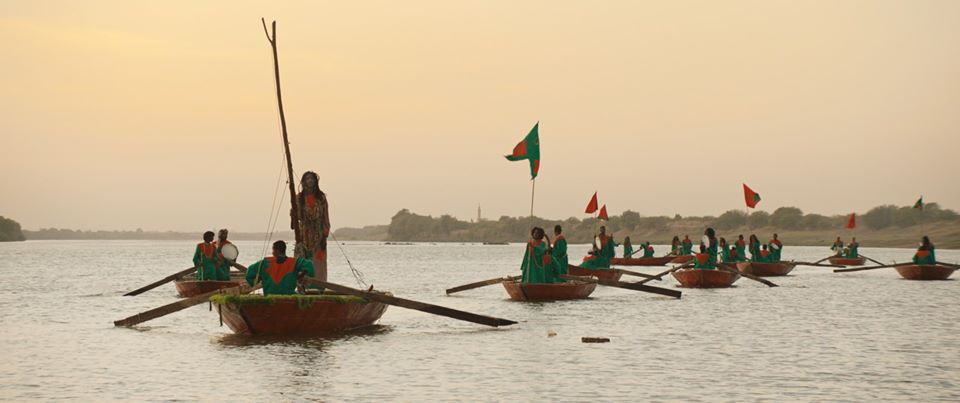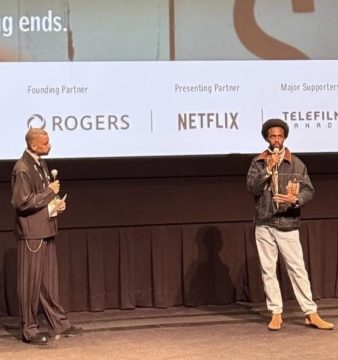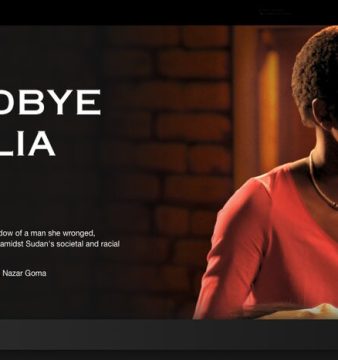“You Will Die at Twenty” and Sudan’s Collectivist Culture

The much-acclaimed film “You Will Die at Twenty” by Sudanese director Amjad Abu Alala follows the journey of a young boy who is prophesied to die once he reaches twenty years of age, and subsequently spends his life navigating the unchartered space of the uncertainty of his existence. His mother also struggles to come to terms with the decree given by the traveling religious leader and dawns herself in black throughout the entire film as a symbolism of the impending doom that her son faces. Whilst his father flees, unable to handle the devastating news about his only son.
The award-winning film explores themes of religion, belief, and destiny through troubled characters and a unique narrative. Director Abu Alala takes a chance by exploring taboo topics of intimacy, alcohol, and forbidden love that are often considered to be distasteful for Sudanese audiences, and as a result, received criticism from within Sudan and among the Sudanese diaspora.
The film was well-received by Western and European audiences, debuting at the 44th Toronto International Film Festival (TIFF ’19) and receiving the Lion of the Future Award at the 76th Venice International Film Critics Week. The film received praises for being ground-breaking, and a part of a new era of modern African cinema.

Abu Alala beautifully captures the simplicity and significance of rural life in Sudan through striking imagery and Islamic symbolism. He also takes a chance by incorporating risqué scenes depicting kissing, cursing, and alcohol.
Sudan was recently a fundamental Islamic state under former Sudanese President Omar Al Bashir and his regime, and the impacts of his government still remain in everyday Sudanese life and traditions. The country still struggles with massive inequality between women and men, poor living conditions and access to education, and discrimination of different religions and sects. It is easy to consider these conditions as contributing to the reluctance and criticism against the film, and to an extent they do, but the societal mindset of Sudanese people plays an even larger role.
The actions depicted in the movie are not foreign to the Sudanese public. Things like relationships, love, cursing, and drinking has long been present in Sudanese society and continue to grow and develop throughout each generation. The problem it appears is not that Sudanese people engage in such things, but that it’s being shown and distributed on international movie screens to be seen by worldwide audiences as a ‘Sudanese film.’ Thus, the actions and thoughts of the characters directly reflect Sudan as a whole.
Sudanese people are unique in that they treasure and value their reputation amongst others and within the world. Arab countries often describe Sudanese people as being ‘incredibly kind’ and a ‘giving people’, and it often appears as though Sudanese people are careful not to disrupt and defy these descriptions of themselves. They value their reputation and wear it around their necks as a symbol of the greatness of their values and traditions that have earned them the praises of others. Therefore, when a Sudanese person deviates from aforementioned values and traditions, ones that have historically been Islamic in nature, it is considered an act of defiance that reflects upon the Sudanese people as whole. Sudanese culture has intrinsically tied one person to an entire collective. A woman is a reflection of her family, a man is a reflection of his household, and a Sudanese person is a reflection on all of the Sudanese. This can also be seen in social media, where the actions of one Sudanese person that deviates from the norm is met with comments such as “This isn’t our culture” and “This person can’t be Sudanese, because we don’t do this.”
And thus, this mentality is also applicable when observing discourse surrounding Abu Alala’s film. The international recognition of “You Will Die at Twenty” is essentially a depiction of Sudan globally. The weight the film bears, of being the first international breakout film, is a tremendous responsibility that Sudanese people feel it must carry well. However, the film is not meant to hold this unspoken cultural framework that has been woven through generations of oppression. It is at the core a story, meant to depict the personal struggles of the characters and the reality of their lives.
But the truth is, when we continue to denounce actions that we deem unacceptable, we are also rejecting individualism and personal liberties. In a society, we must engage with those different from us, who hold different beliefs, and chose to live differently if we wish to rid the country from the divisiveness and turmoil that has killed, imprisoned, and disadvantaged the most vulnerable under decades of authoritarian rule. The fact of the matter is, Abu Alala’s characters exist. They exist in Sudan and are just as entitled to the same identity, protections, and freedoms without being branded as deviants and outliers.
“You Will Die at Twenty” is a poignant tale that explores the intricacies of life and death. The story at the core is much deeper than the actions of the characters and by understanding that individuality is a right for all, we can begin to explore and celebrate the inner workings of our society and the range of experiences that Sudanese people face every day.

Leena Badri is a 21-year-old writer of many genres, a lover of all creative mediums, and a student of International Relations in Toronto, Canada. She explores topics of political culture, society, and media. Find her on Instagram at @leenabadri.




